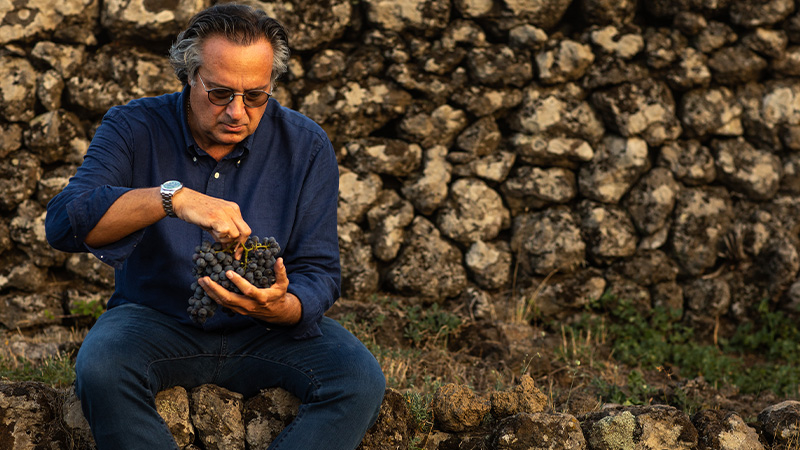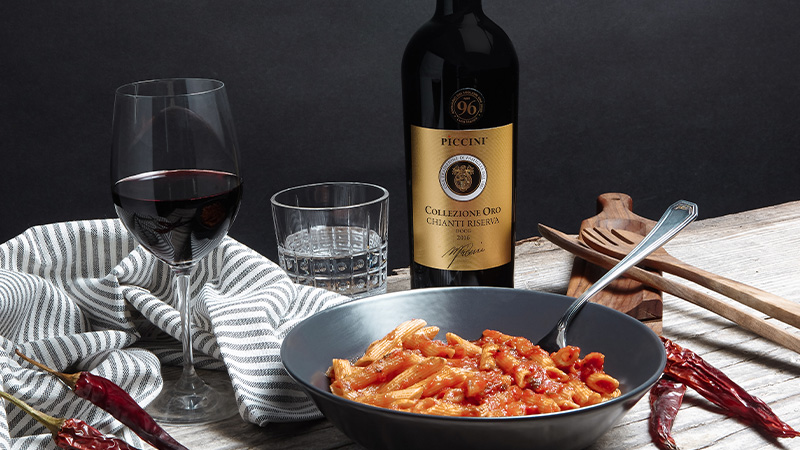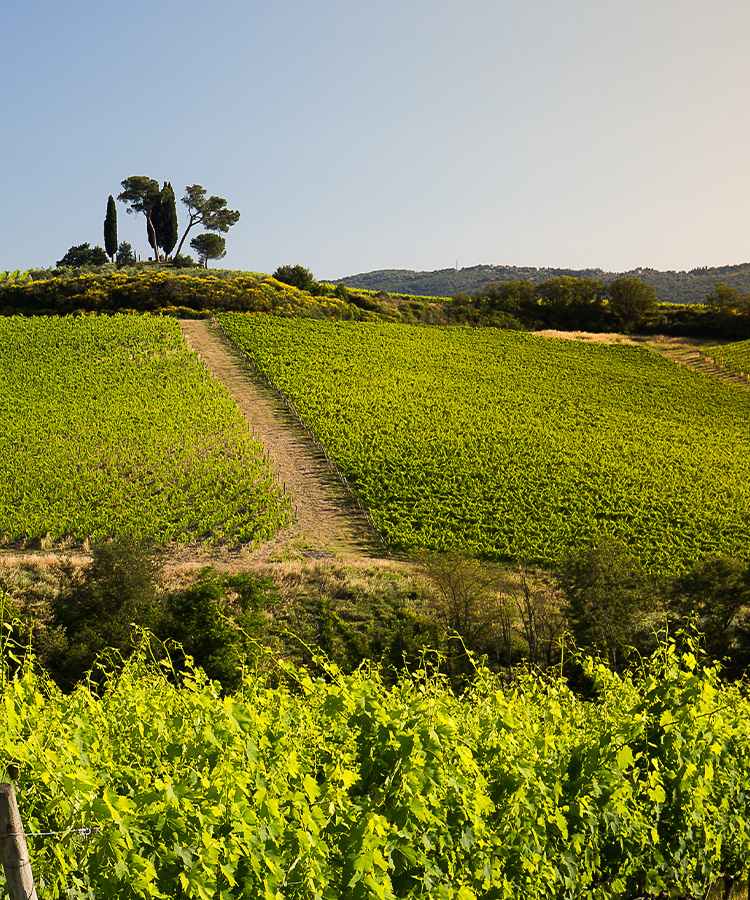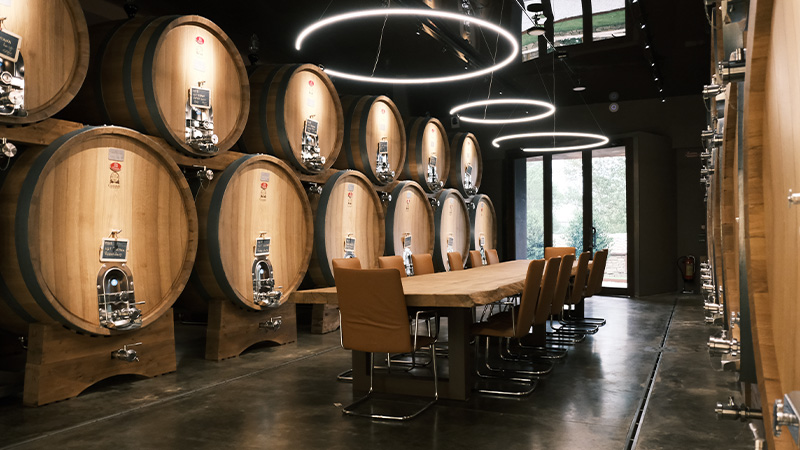
The Piccini family has been rewriting the Chianti playbook for more than 140 years. With roots deep in Tuscany, they’ve bridged Old World traditions with modern innovations, creating wines that appeal to both traditionalists and today’s more adventurous wine lovers. This is more than just a winemaking family — Piccini represents a legacy that bridges the classic charm of Chianti with an innovative approach that speaks to modern wine lovers. From humble beginnings in the late 19th century, Piccini has grown to become one of Italy’s most recognizable wine producers, embodying a legacy that connects the classic appeal of Chianti with a forward-thinking approach.
The Origins: A Small Vineyard With Big Dreams
In 1882, Angiolo Piccini purchased a modest 7-hectare vineyard in the town of Poggibonsi, in the heart of Chianti. From this plot of land, Angiolo and his heirs brought the Piccini name to every corner of the globe, shaping the fortunes of Tuscan wine. As Chianti wines gained international acclaim, Angiolo saw an opportunity to channel his passion into winemaking. His motto, “It’s not about how much wine we make, but how much passion we put into it,” established the foundation of the Piccini philosophy from the very beginning. By the early 20th century, the winery had expanded, but its roots — both literal and figurative — remained firmly planted in Tuscany’s rich soil.
Today, Piccini is in the hands of the fourth and fifth generations. Mario Piccini continues to lead the family business, but his children — Ginevra, Benedetta, and Michelangelo — are bringing their own spin to the family business. One of their most exciting moves has been their commitment to sustainability. Piccini is an Equalitas-certified winery. This certificate highlights the winery’s commitment to environmentally responsible practices, fair labor conditions, and contributing positively to the local community. With this certification, Piccini ensures its winemaking aligns with principles that protect both the land and the people involved in every step of the process.
“Our commitment in this regard is twofold: to provide a product that aligns with these evolving market expectations, while also giving back to nature in return for the bounty she offers us each harvest,” said Mario Piccini.

Chianti: The Heart of Tuscany
Tuscany, especially Chianti, is at the very core of Piccini’s winemaking heritage. This region’s winemaking legacy goes back centuries, and its picturesque rolling hills, limestone-rich soils, and sunny Mediterranean climate create the perfect conditions for growing Sangiovese, the grape that’s the backbone of Chianti wines.
“The Chianti region plays a crucial role in shaping the character of our wines,” said Mario Piccini. “The region’s hilly altitudes create a beneficial temperature range that helps preserve the wine’s acidity and elegance. These unique conditions give Chianti its balanced structure, with tannins that are present but refined, and an aromatic profile rich with notes of cherry, violet, and spices. The result is a wine with a distinctive freshness and excellent aging potential.”
Piccini Orange Label Chianti
Piccini’s Orange Label Chianti marks a bold reinvention of one of Italy’s most traditional wines. At the turn of the millennium, Mario Piccin crafted a modern version of Chiant for a new generation. The result was a wine reflective of Tuscany’s terroir — a blend dominated by 90 percent Sangiovese, with 5 percent Ciliegiolo and 5 percent Canaiolo adding complexity and structure — that pushes the boundaries of Tuscan winemaking. Today, the distinctive orange label represents the innovative spirit that drives Piccini forward.
With vibrant fruit-forward flavors, a refreshing acidity, and a rounded finish, the Orange Label Chianti is approachable yet layered, making it the perfect entry point for those new to Italian wines. It’s an excellent everyday Chianti that pairs beautifully with grilled meats, hard cheeses, and classic pasta dishes with tomato-based sauces.
Piccini Chianti Classico DOCG
The Chianti Classico region, where Piccini is based, is particularly renowned for its winemaking. The area’s unique terroir, with its well-drained soil and warm climate, allows Piccini to produce wines with complex, earthy flavors, particularly in the Sangiovese varietal.
Piccini’s Chianti Classico embodies more than a century of winemaking expertise. This blend of Sangiovese and Merlot creates a complex aroma that opens with inviting hints of spices and ripe berries. On the palate, it’s well-structured with refined fruity undertones and a velvety texture. The tannins are gentle enough to provide complexity without overwhelming the palate. This allows the wine’s elegance to take center stage. Perfectly suited for pairing with game, grilled meats, or aged cheeses, this Chianti Classico is a true celebration of Tuscan craftsmanship.

Expanding Beyond Chianti
While Chianti may be the flagship, Piccini’s portfolio extends beyond Tuscany’s famous hills. They’ve ventured into regions like Montalcino, located 40 miles south of Chianti, where the climate and soils produce rich, full-bodied wines. The region’s unique terroir — a blend of clay, limestone, and sandy soils — produces complex, age-worthy wines with robust tannins, balanced acidity, and rich flavors of dark fruit, spice, and earth. Whole Foods Market has rolled out nationally into 300-plus stores two new organic Piccini wines in their portfolio.
Brunello di Montalcino DOCG
Piccini’s Brunello di Montalcino DOCG exemplifies the richness and depth that this region is known for. While Chianti wines are typically lighter and brighter, Montalcino’s warmer climate and distinct terroir give Brunello a fuller body and more intense character. Piccini’s Brunello is a stunning example. Made with 100 percent Sangiovese grapes, the wine has garnet hues with aromas of licorice and cherry, and a refined palate that’s framed by soft tannins. It’s the kind of wine that begs to be paired with braised meats, wild game, or soft cheeses and is an ideal wine to serve at a for a special-occasion meal.
Looking ahead, Piccini remains committed to innovation, sustainability, and honoring their heritage. From their foundational roots in Chianti to expansions into regions like Montalcino, the family embraces the evolving world of winemaking while staying true to their origins. Whether it’s the approachable Chianti Orange Label or the robust Brunello di Montalcino, Piccini’s wines offer a window into Tuscany’s storied past and its promising future.
This article is sponsored by Piccini.


